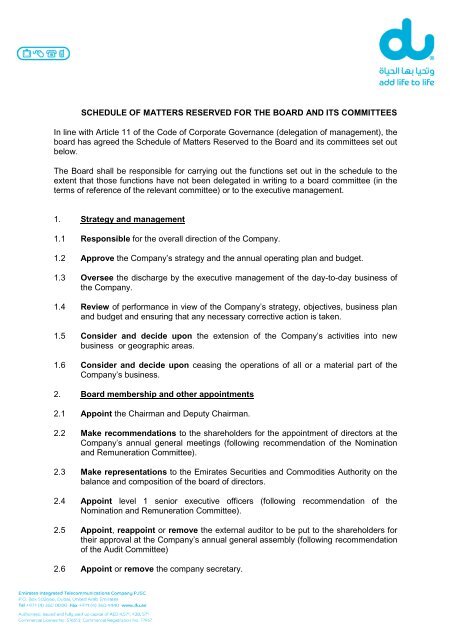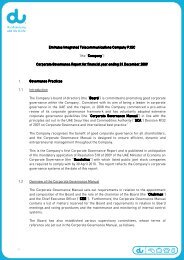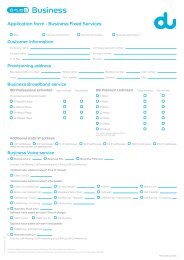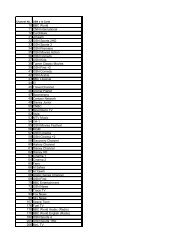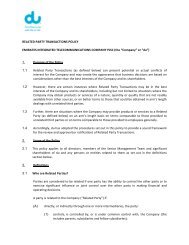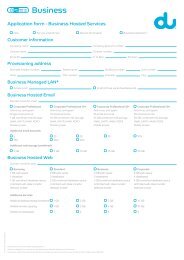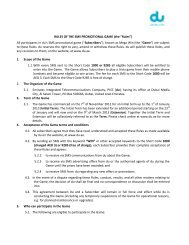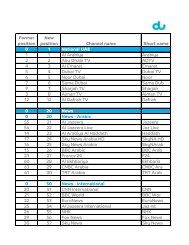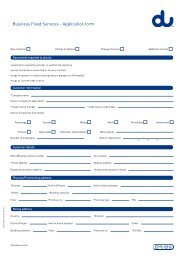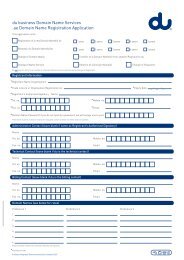SCHEDULE OF MATTERS RESERVED FOR THE BOARD AND ITS ...
SCHEDULE OF MATTERS RESERVED FOR THE BOARD AND ITS ...
SCHEDULE OF MATTERS RESERVED FOR THE BOARD AND ITS ...
You also want an ePaper? Increase the reach of your titles
YUMPU automatically turns print PDFs into web optimized ePapers that Google loves.
<strong>SCHEDULE</strong> <strong>OF</strong> <strong>MATTERS</strong> <strong>RESERVED</strong> <strong>FOR</strong> <strong>THE</strong> <strong>BOARD</strong> <strong>AND</strong> <strong>ITS</strong> COMMITTEES<br />
In line with Article 11 of the Code of Corporate Governance (delegation of management), the<br />
board has agreed the Schedule of Matters Reserved to the Board and its committees set out<br />
below.<br />
The Board shall be responsible for carrying out the functions set out in the schedule to the<br />
extent that those functions have not been delegated in writing to a board committee (in the<br />
terms of reference of the relevant committee) or to the executive management.<br />
1. Strategy and management<br />
1.1 Responsible for the overall direction of the Company.<br />
1.2 Approve the Company’s strategy and the annual operating plan and budget.<br />
1.3 Oversee the discharge by the executive management of the day-to-day business of<br />
the Company.<br />
1.4 Review of performance in view of the Company’s strategy, objectives, business plan<br />
and budget and ensuring that any necessary corrective action is taken.<br />
1.5 Consider and decide upon the extension of the Company’s activities into new<br />
business or geographic areas.<br />
1.6 Consider and decide upon ceasing the operations of all or a material part of the<br />
Company’s business.<br />
2. Board membership and other appointments<br />
2.1 Appoint the Chairman and Deputy Chairman.<br />
2.2 Make recommendations to the shareholders for the appointment of directors at the<br />
Company’s annual general meetings (following recommendation of the Nomination<br />
and Remuneration Committee).<br />
2.3 Make representations to the Emirates Securities and Commodities Authority on the<br />
balance and composition of the board of directors.<br />
2.4 Appoint level 1 senior executive officers (following recommendation of the<br />
Nomination and Remuneration Committee).<br />
2.5 Appoint, reappoint or remove the external auditor to be put to the shareholders for<br />
their approval at the Company’s annual general assembly (following recommendation<br />
of the Audit Committee)<br />
2.6 Appoint or remove the company secretary.
2.7 Ensure adequate succession planning for the board and senior management.<br />
3. Remuneration<br />
3.1 Determine the remuneration policy for the directors and other senior executives<br />
3.2 Determine the remuneration of non-executive directors.<br />
3.3 Determine employees’ compensation policy and benefits structure.<br />
4. Structure and capital<br />
4.1 Approve changes relating to the Company’s capital structure.<br />
4.2 Approve major changes to the Company’s corporate structure, management and<br />
control structures.<br />
4.3 Approve any changes to the Company’s status as a listed company.<br />
4.4 Approve any proposed mergers and acquisitions, joint venture arrangements,<br />
strategic alliances and acquisition or disposal of subsidiaries or assets within the<br />
telecommunications industry.<br />
5. Financial reporting and controls<br />
5.1 Review in detail the Company’s financial statements to be put to the shareholders<br />
for their approval at the Company’s annual general assembly (following<br />
recommendation of the Audit Committee)<br />
5.2 Approve announcements of interim and final results.<br />
5.3 Approve the annual report and accounts including the report on corporate<br />
governance.<br />
5.4 Approve the dividend policy.<br />
5.5 Declare dividends.<br />
5.6 Approve any significant changes in the Company’s accounting policies and practices.<br />
6. Internal controls<br />
6.1 Ensure maintenance of a sound system of internal control and risk management<br />
including financial, operational and compliance controls and risk management<br />
processes.<br />
6.2 Monitor the effectiveness of the Company’s risk management processes and<br />
systems to ensure the effective identification, monitoring and control of risks.<br />
6.3 Undertake a regular review of significant financial reporting issues and judgments<br />
made in connection with the preparation of the financial statements.
7. Contracts and expenditure<br />
7.1 Review, evaluate and approve transactions which fall outside the executive<br />
management’s authority matrix as amended from time to time (following<br />
recommendation of the Investment Committee).<br />
7.2 Review, evaluate and approve the Company’s borrowing and loan repayment<br />
policies and practices.<br />
8. Communication<br />
8.1 Approve resolutions and related documentation to be put forward to shareholders at<br />
a general assembly.<br />
8.2 Approve major press releases concerning matters decided by the board.<br />
9. Delegation of authority<br />
9.1 Divide responsibilities between the Chairman and the Chief Executive Officer.<br />
9.2 Approve terms of reference of board committees.<br />
9.3 Receive reports from board committees on their activities.<br />
10. Corporate governance matters<br />
10.1 Conduct an adequate annual evaluation of the board’s own performance, that of its committees<br />
and other directors.<br />
10.2 Determine the independence of directors.<br />
10.3 Review the Company’s overall corporate governance arrangements.<br />
10.4 Receive reports on the views of the Company’s shareholders.<br />
11. Policies<br />
11.1 Approve policies including:<br />
(A)<br />
(B)<br />
(C)<br />
(D)<br />
(E)<br />
(F)<br />
(G)<br />
(H)<br />
(I)<br />
Code of ethics;<br />
Share dealing policy;<br />
Related party transactions policy;<br />
Corporate Social Responsibility policy;<br />
Whistle-blowing policy;<br />
Anti-harassment and bullying policy;<br />
Communications with shareholders and disclosure policy<br />
No-smoking policy;<br />
Directors’ access to independent advice policy; and
(J)<br />
Board of directors evaluation policy.<br />
11.2 For the avoidance of doubt the word “policy” in this paragraph 11 refers to broad,<br />
high-level statement of general principles relating to a particular issue. Policies should<br />
not be confused with “procedures” which are the steps and action taken by the<br />
executive management to implement policies approved by the board of directors.


